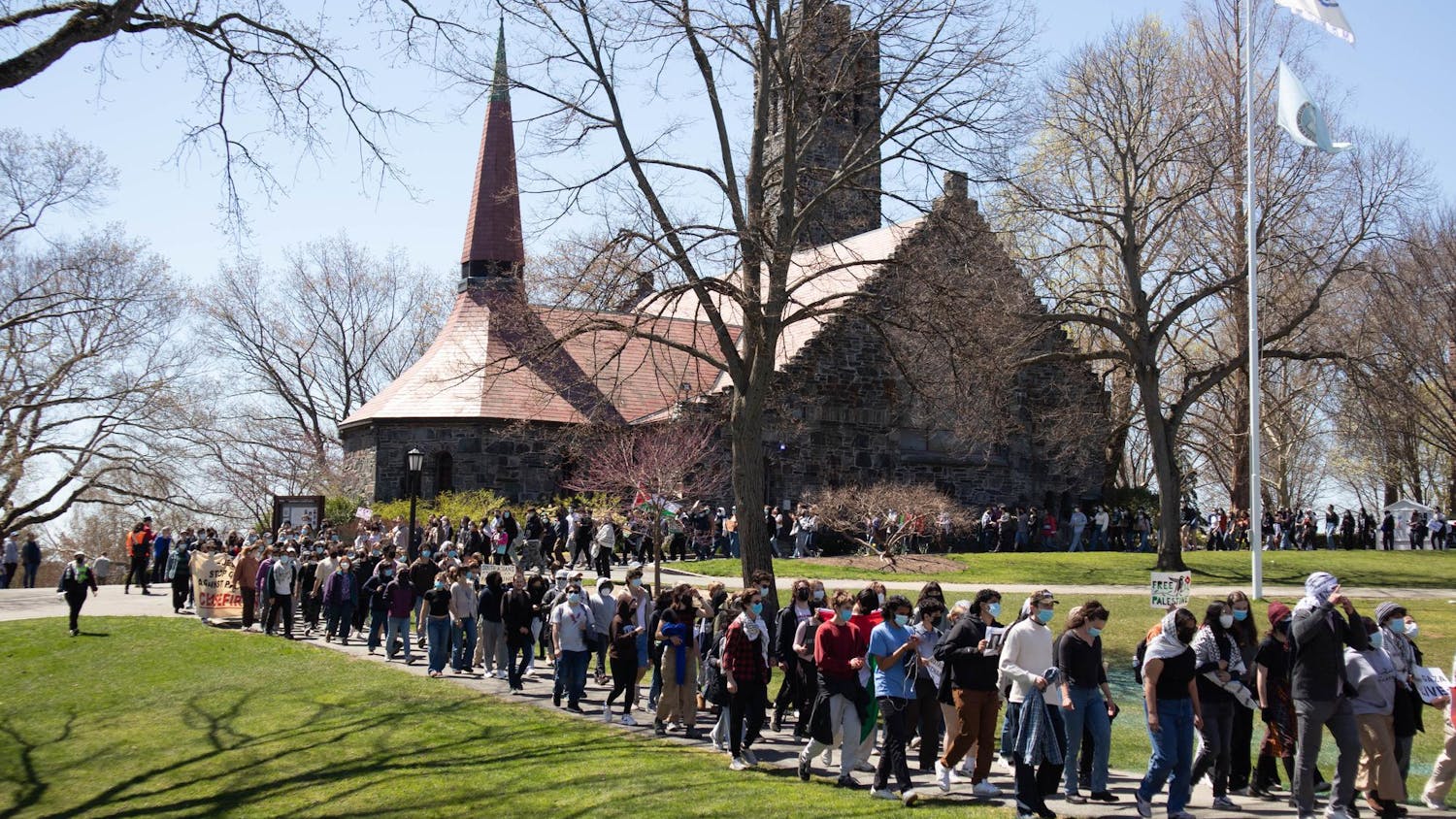Over 250 students have signed a statement, currently circulating with the help of several student and alumni organizers, in solidarity with a resolution by the American Studies Association (ASA) to boycott Israeli academic institutions.
The ASA is an academic association committed to the interdisciplinary study of American culture and history with over 5,000 member institutions and individuals, according to its website.
The ASAs National Council voted to endorse an academic boycott of Israeli institutions on Dec. 4. Less than three weeks later, on Dec. 23, the Office of University President Anthony Monaco released a statement, opposing the resolution while stating that the university is not an institutional member of the ASA.
As an institution of higher education, Tufts University is deeply committed to the principles of academic freedom and educating students to be active global citizens, the statement from Monacos office said. Boycotting academic institutions in response to government policies would undermine the academic freedom of scholars around the world.
The statement from Monacos office came a day after student organizers released their own statement with a differing viewpoint. The group of students and alumni believe that the current Israeli academic system is unfair to Palestinians.
The undersigned support the boycott of a system that represses Palestinian peoples opportunities for intellectual freedom, political expression, physical safety and overall well-being, and thereby support the American Studies Association in their decision to boycott Israeli academic institutions who partake in this system of oppression, the students statement said.
In a collaborated response to questions from the Daily, student organizers said that Israeli academic institutions are a major part of what they call an apartheid social and political structure based on racism and settler colonialism.
The students further explained the integration between Israeli universities and politics.
The oppression of the Palestinian people is not the result of invisible and faceless government policies, they said. Although we like to imagine universities in a bubble apart from the political structure of [Israel], academies in Israel are deeply integrated and complicit in the occupation.
The statement released by student organizers said that members of the Tufts faculty have been targeted for their individual support of the ASAs resolution.
According to the statements authors, a letter sent by an alumnus to President Monaco and Tufts deans singled out two Tufts professors who had independently signed onto the ASA resolution. The letter suggested that some members of the Tufts Alumni Association were prepared to put social and financial pressure on the university administration to speak out against both the ASAs resolution and the faculty in support of it, the students said. The student organizers are concerned this response from select alumni will affect campus life.
The fact that professors are being targeted for signing onto the resolution could change how comfortable students, faculty and staff are with expressing their opinions and continuing the conversation, they said.
Tufts supports the right to diversity of opinion amongst its faculty, in addition to the right of faculty members to participate in the ASA and other professional associations, according to Director of Public Relations Kimberly Thurler.
Tufts is strongly committed to freedom of expression and the right of faculty and students alike to express their individual views on this or other issues, she told the Daily in an email.
Research Professor of Judaic Studies and Executive Director of Hillel Rabbi Jeffrey Summit said that universities are important centers of communication between the Israeli people and their Arab neighbors.
I spoke with colleagues who teach at Hebrew University who spoke about how diverse their student body is [with] Israeli Jews and Arabs studying together and how Israels universities are a site for open, self-reflective and critical debate in Israel, he said.
Summit said he believes that conversation among scholars is vital to conflict resolution between Israel and Palestine.
Boycotting and shutting down contact among universities does little to advance peace, Summit said. Open contact among scholars and universities offers more productive ways to address, mediate and solve conflict and presents a better model for our students as global citizens.
However, the student authors of the statement in favor of the ASAs resolution believe that there is a distinction between boycotting Israeli academic institutions and ceasing communication.12





